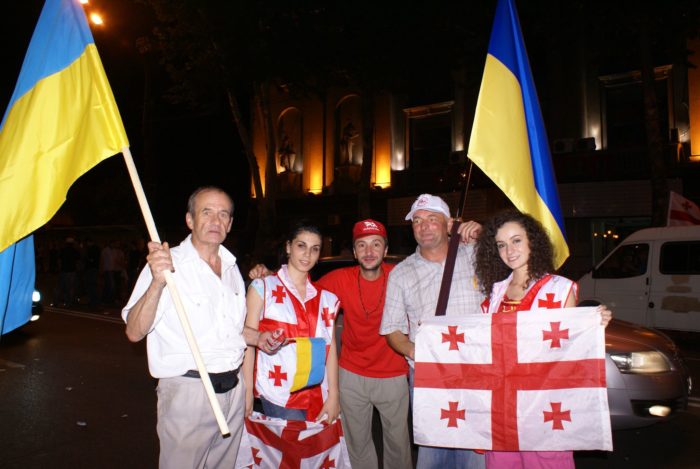The European Court of Human Rights says Russia must compensate Georgia for the displacement, killing, and torture and detention of civilians during its 2008 invasion.
The European Court of Human Rights (ECHR) has ruled regarding the compensation that Russia must pay Georgia for the 2008 war. Although the judgment in the case of Georgia v. Russia was announced in January 2021, the issue of compensation was taken up for separate consideration.
According to the ruling, Russia must pay €129 million to Georgia within three months as compensation to several groups of victims of its illegal actions. €115 million is to be paid to 23,000 Georgian citizens who cannot return to their homes in South Ossetia and Abkhazia.
Furthermore, €3.25 million is to be paid as compensation for the killing of 50 civilians in the “buffer zone.” Georgia claimed 116 such cases, but the ECtHR excluded those killed during the “active phase of the war,” which it did not accept into its jurisdiction.
Additionally, €2.7 million in compensation is to be paid to at least 166 victims of arbitrary detention and inhuman treatment of civilians in South Ossetia from 10-27 August 2008, while €640,000 is to be paid for proven cases of torture of at least 16 Georgian prisoners of war in Tskhinvali from 8-17 August 2008.
Finally, €8.24 million is to be paid for non-pecuniary damage to at least 142 people due to Russia’s refusal to investigate the deaths of civilians during the “active phase of hostilities.”
The ECHR confirmed its jurisdiction to consider Georgia’s claim for compensation, despite Russia’s expulsion from the Council of Europe and termination of its participation in the European Convention on Human Rights.
However, in 2022, Russia withdrew from the jurisdiction of the European Court of Human Rights, refusing to comply with its decisions.
Background: ECHR ruled in favor of Georgia in 2008, but Russia claims victory in one point
The ECHR ruled in favor of Georgia in its long-standing dispute with Russia over the 2008 war on 22 January 2021. The ruling has been seen as a significant victory for Georgia, which has been celebrating the decision. Georgia’s Prime Minister, Giorgi Gakharia, called it “one of the most important days in Georgia’s modern history.” The ECHR found in favor of 15 of the 16 points made by Georgia in its complaint against Russia. The one point the court did not address was the five-day hot phase of the conflict, which Russia claims as its victory.
The case, titled “Georgia v. Russia-2,” is focused on the aftermath of the 2008 conflict, which saw Russia invade Georgia’s South Ossetia region. The court’s decision is seen as a blow to Russia’s claims of legitimacy in the conflict, as the court found that Russia had violated Georgia’s rights to life, property, and freedom of movement during and after the conflict.
However, Russia has claimed victory in the one point that was not addressed by the court. Russia focused on the fact that the ECHR did not rule on the five-day hot phase of the conflict, which saw Russia assert control over the South Ossetia region. This is the point that Russia hopes will help them in their ongoing conflict with Ukraine, which began when Russia annexed Crimea in 2014 and has since escalated into a full-scale invasion of eastern Ukraine.
The victory of Georgia in the ECHR case is seen as a boost for Ukraine, European Pravda reported. The case highlights the fact that Russia has a history of violating the rights of its neighbors and that its aggression should not be tolerated.
Ukraine’s Ministry of Justice still has a chance to win its own case against Russia in the ECHR, which is also focused on the aftermath of the 2014 annexation of Crimea. However, the task has been made more difficult by the ECHR’s ruling in the Georgia case.
- In January 2023, the ECHR ruled that Russia had occupied part of Donbas since 11 May 2014, as part of the Donbas case.
- On 20 February, the ECHR agreed to combine the case of Ukraine v. Russia (X) with the larger case of Ukraine and the Netherlands v. Russia.




